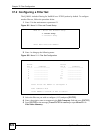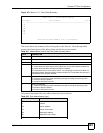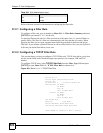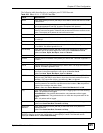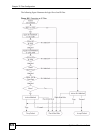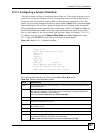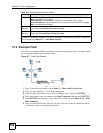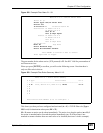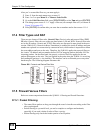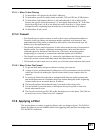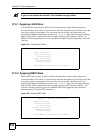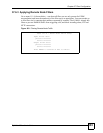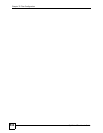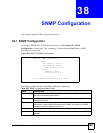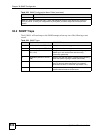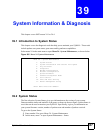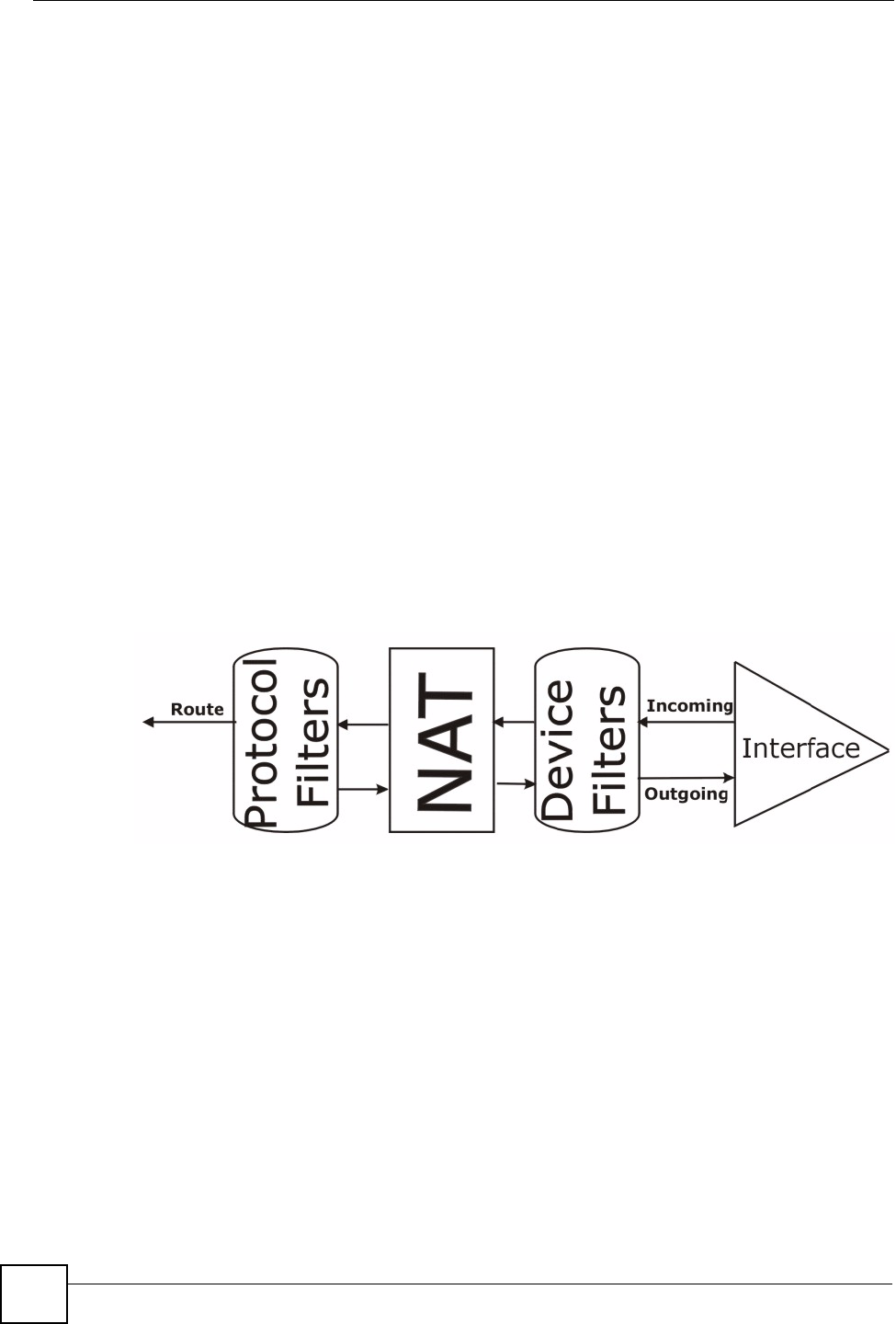
Chapter 37 Filter Configuration
ZyWALL 2 Plus User’s Guide
530
After you’ve created the filter set, you must apply it.
1 Enter 11 from the main menu to go to menu 11.
2 Enter 1 or 2 to open Menu 11.x - Remote Node Profile.
3 Go to the Edit Filter Sets field, press [SPACE BAR] to select Yes and press [ENTER].
4 This brings you to menu 11.1.4. Apply a filter set (our example filter set 3) as shown in
Figure 363 on page 533.
5 Press [ENTER] to confirm after you enter the set numbers and to leave menu 11.1.4.
37.4 Filter Types and NAT
There are two classes of filter rules, Generic Filter (Device) rules and protocol filter (TCP/
IP) rules. Generic filter rules act on the raw data from/to LAN and WAN. Protocol filter rules
act on the IP packets. Generic and TCP/IP filter rules are discussed in more detail in the next
section. When NAT (Network Address Translation) is enabled, the inside IP address and port
number are replaced on a connection-by-connection basis, which makes it impossible to know
the exact address and port on the wire. Therefore, the ZyWALL applies the protocol filters to
the “native” IP address and port number before NAT for outgoing packets and after NAT for
incoming packets. On the other hand, the generic, or device filters are applied to the raw
packets that appear on the wire. They are applied at the point when the ZyWALL is receiving
and sending the packets; i.e. the interface. The interface can be an Ethernet port or any other
hardware port. The following diagram illustrates this.
Figure 360 Protocol and Device Filter Sets
37.5 Firewall Versus Filters
Below are some comparisons between the ZyWALL’s filtering and firewall functions.
37.5.1 Packet Filtering:
• The router filters packets as they pass through the router’s interface according to the filter
rules you designed.
• Packet filtering is a powerful tool, yet can be complex to configure and maintain,
especially if you need a chain of rules to filter a service.
• Packet filtering only checks the header portion of an IP packet.



